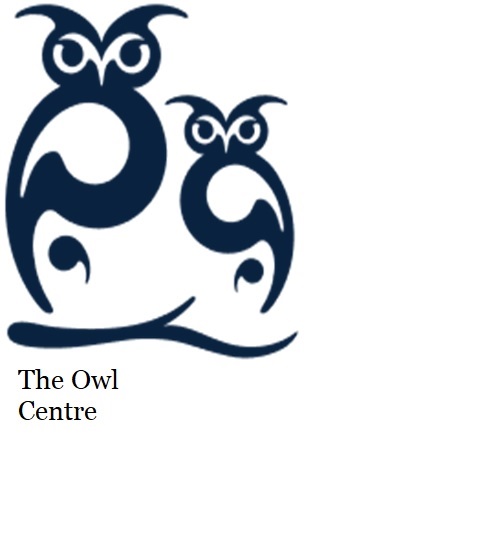For the first time in their three qualifications for major tournaments, Wales suffered the kind of heavy defeat/thrashing I think most football fans from this country would have feared was coming when they competed against so many of the best sides in the world.
Wales took their leave of the Euros with a 4-0 defeat by Denmark that was as one sided as the score line suggests I’m afraid. There were a few mitigating circumstances that I’ll come to later, but, although you try to take the positives from every game in competitions like these, the writing had been on the wall that this squad were not as strong as the 2016 one – that was one of the main reasons why I thought it was a very good achievement to qualify from what was being described as possibly the second toughest qualifying group before a ball had been kicked.
If you think back to 2016, I don’t believe it’s an exaggeration to say that, after Cristiano Ronaldo, Gareth Bale was thought of as the biggest star in the tournament, but the thing that I’d say confirms that we were a bit more than just a decent side that got lucky was that, besides him, we had two others who were picked in the UEFA team of the tournament.
Bale, Ramsey and Allen were major players in the 2016 tournament and while the others in the team were not in that sort of class, there was a nucleus that had fifty or more caps who knew their way around international football.
The intervening years have not been kind to our big three – they’re all in their early thirties now and so are of an age where you’d expect to see some evidence of a decline in their powers, but I’ve mentioned after an earlier match that while the side Joe Allen plays his club football for may not have changed since 2016, their status most certainly has – for established mid table Premier League team, now read mid table Championship outfit. Throw in a cruciate ligament injury as well and is it any wonder Allen has found things much more of a struggle this time?
While Aaron Ramsey of Juventus and Gareth Bale of Real Madrid sounds impressive, persistent injuries have taken their toll on the former to the extent that his match winning contribution to the Hungary win which clinched our qualification apart, Ramsey has been a bit part player for his country for the best two years or so.
Bale has not suffered the injuries Allen and Ramsey have, but his club career has been in a state of limbo in recent years and this must have had an effect on his playing capabilities. Bale showed at times in his loan spell with Spurs that there is still a significant player there and he and Ramsey were both excellent against Turkey, but, that game apart, there was little from that pair or Allen to suggest that the selectors of the 2021 UEFA team would need to spend much time considering their claims for a place in their side.
The partial decline of three great Welsh players gave us a mountain to climb if we were going to come close to matching what we did in 2016 and our cause wasn’t helped by the fact that with the exception of Dan James, the youngsters that looked such great prospects, especially in attacking areas, a few years ago have not come on as quickly as hoped.
I say that mind while also thinking that’s a harsh judgement, especially for someone like David Brooks who was making a significant impact in the Premier League before the injury which caused him to miss most of the 19/20 season. It also needs to be emphasised that while they’ve been around for quite a few years now, the likes of Brooks, Ampadu, Wilson and Tyler Roberts are still very young by the standards of international football.
However, it is these players, as well as, say Connor Robert’s, Joe Morrell and Danny Ward who have come in to replace that group of multi capped established performers that I referred to earlier. – to my mind, whereas we had Wayne Hennessey, Chris Gunter, Ashley Williams, Neil Taylor and Joe Ledley in France, the only player who falls into that category now is Ben Davies.
All of that should be borne in mind in any assessment of our 2021 campaign, as should a format that has us travelling over 5;000 miles to play our matches and today’s opponents having to travel less than a tenth of that. UEFA has created a totally unfair system whereby there are so many countries, many of which would be considered to be among Europe’s better teams, who have, up to now at least, been virtual hosts nations while, leaving Wales out of it, countries like Switzerland and Sweden have had to travel enormous distances to play their first three matches.
Just as against Turkey, this was another away match that wasn’t quite an away match due to Dutch Government’s decision to ban visitors from the UK while allowing Danish supporters to travel to their country – officially there was a crowd of 16,000 present today, but it looked more than that and it was remarked that the locals who had attended were, almost without exception, backing the Danes.
The reason for this of course is the heart failure suffered by Christian Eriksen on the pitch during Denmark’s first game against Finland. Eriksen was clearly Denmark’s most gifted player to the extent that it was possible to think he was the one thoroughbred in a team of work horses.
What has happened since Eriksen’s near death experience has been profound for a couple of reasons – first, it’s galvanised the country and this has been passed on to the team as they are now playing with an intensity that is hard to counter – Wales and Russia had no answer to it and Belgium were lucky to beat them 2-1 in a game where the world’s number one team were second best for most of the time.
I was going to say that only Italy have been able to match Denmark’s relentlessness so far, but, as I type this, Italy are going into extra time having been pretty lucky to escape with a 0-0 draw against an unheralded but impressive on the night Austrian side. There have been signs that Italy are suffering for their high pressing approach in their three group games in Rome, but I wonder if the Danes can carry on regardless because of the Eriksen effect?
That Eriksen effect can also be seen in the transformation in the character and mindset of the team. As I’d hinted at early, I’d always thought of Denmark as a pretty stolid outfit that left the fancy stuff to the former Ajax and Spurs man, but, in his absence, it seems like other members of the team have been liberated – more likely, they’ve been given license to show that they have a lot more ability and flair than I for one was prepared to credit them with.
There’s more than mere football going on with the Danes at the moment and I suspect they would have had too much for the 2016 Wales team to cope with.
Truthfully, Denmark didn’t need any help from the officials today, but they got it anyway from German referee Daniel Siebert who was not up to the standard you’d want or expect for a fixture like this. Harsh bookings for Joe Rodon and Keiffer Moore were a foretaste of what was to come as an obvious foul on Moore was missed in the build up to the second goal and then Wales suffered a third shocking sending off decision in six games as Harry Wilson was dismissed for a lunging tackle which was clearly a foul, but the question I asked myself when I first saw the incident was if that was a red card offence what on earth does he consider to be a yellow card one? For me, Wilson’s foul was a clear yellow card offence, especially when the foul was committed out on the touchline with no immediate threat to the Welsh goal.
It needs to be said that the sending off happened in the ninetieth minute with Wales 3-0 down, so there was no way back for us by then, but the feeling that this was an occasion when absolutely everything was against Wales was intensified with the fourth goal, which was allowed after a long VAR consultation despite the TV pictures suggesting that the scorer was very marginally offside.
In the end, I think Gary Lineker got it right when he said “commiserations to Wales, but Denmark have got a mixture of momentum and emotion behind them” – it’s looking a pretty potent brew at the moment which I can see them to the Semi Finals at least.
I agreed with Rob Page when he said that this group of players did not deserve to bow out of the tournament in the way they did, but, when you add in the fact that it was him who was saying these things as opposed to the man who should have been here, Ryan Giggs, the upheaval caused by Giggs’ arrest and subsequent charges was just another reason to go along with the others I mentioned to suggest that in decades to come, people will, I believe, look at our Euro 20/21 campaign and wonder how we managed to get so far in the competition with all of the obstacles that have been put in their way over the past two years or so.




